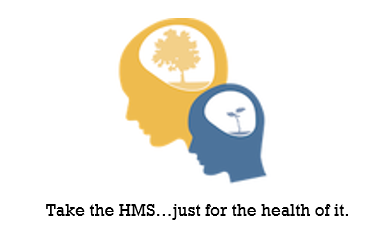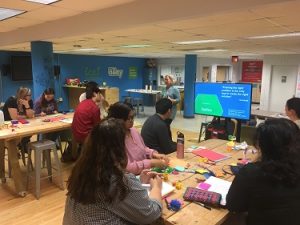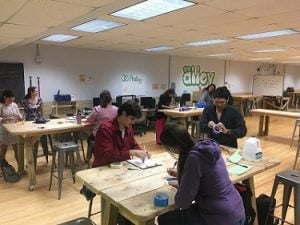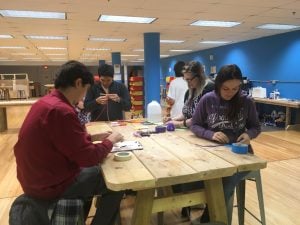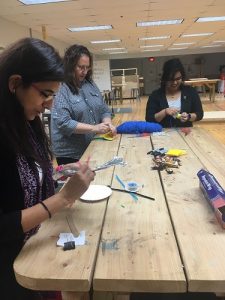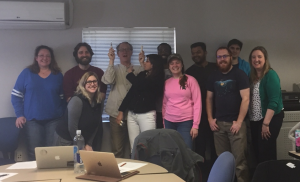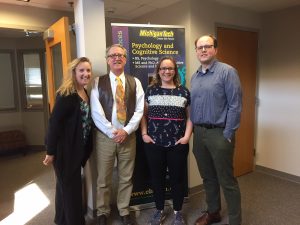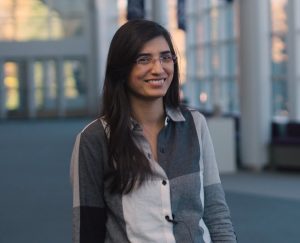 Lavanya was selected for the prestigious program that is focused on entrepreneurship training in substance abuse research. Innovation to Impact at Yale was developed as a national program to provide education, mentorship, and seed funding to innovators. The program is open to scholars interested in both exploring what it takes to bring a product to market and applying creative solutions to combat substance abuse through the use of pharmaceuticals, diagnostics, biomedical devices, app development, behavioral interventions, and public policy. The goal of the program is to help participants translate innovations from the lab to the real world.
Lavanya was selected for the prestigious program that is focused on entrepreneurship training in substance abuse research. Innovation to Impact at Yale was developed as a national program to provide education, mentorship, and seed funding to innovators. The program is open to scholars interested in both exploring what it takes to bring a product to market and applying creative solutions to combat substance abuse through the use of pharmaceuticals, diagnostics, biomedical devices, app development, behavioral interventions, and public policy. The goal of the program is to help participants translate innovations from the lab to the real world. Lavanya was selected for the prestigious program that is focused on entrepreneurship training in substance abuse research. Innovation to Impact at Yale was developed as a national program to provide education, mentorship, and seed funding to innovators. The program is open to scholars interested in both exploring what it takes to bring a product to market and applying creative solutions to combat substance abuse through the use of pharmaceuticals, diagnostics, biomedical devices, app development, behavioral interventions, and public policy. The goal of the program is to help participants translate innovations from the lab to the real world.
Lavanya was selected for the prestigious program that is focused on entrepreneurship training in substance abuse research. Innovation to Impact at Yale was developed as a national program to provide education, mentorship, and seed funding to innovators. The program is open to scholars interested in both exploring what it takes to bring a product to market and applying creative solutions to combat substance abuse through the use of pharmaceuticals, diagnostics, biomedical devices, app development, behavioral interventions, and public policy. The goal of the program is to help participants translate innovations from the lab to the real world.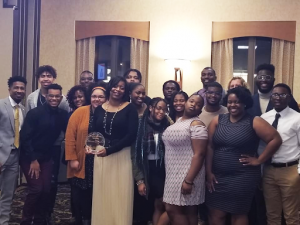 Darnishia Slade (Pavlis Honors College) was awarded the inaugural Bayard Rustin Award by the Michigan Tech chapter of the National Society of Black Engineers (NSBE). The award was presented at the University’s 30th annual MLK Banquet on Jan. 21. The story was featured in the Lode student newspaper. Darnishia is also a PhD candidate in the Applied Cognitive Science and Human Factors program. Congratulations Dar!
Darnishia Slade (Pavlis Honors College) was awarded the inaugural Bayard Rustin Award by the Michigan Tech chapter of the National Society of Black Engineers (NSBE). The award was presented at the University’s 30th annual MLK Banquet on Jan. 21. The story was featured in the Lode student newspaper. Darnishia is also a PhD candidate in the Applied Cognitive Science and Human Factors program. Congratulations Dar!
The Healthy Minds Survey (HMS) is a campus-wide, nationally recognized, online survey about student mental health and well being. Since its national launch in 2007, HMS has been fielded at over 180 colleges and universities, with over 200,000 survey respondents. Getting this information from students across the country will help the Healthy Minds Network get a clearer picture of how students handle the stresses of college life and how well their mental and emotional health needs are being met. More importantly, Michigan Tech will gain valuable information that will help the university make informed decisions about the mental health services and outreach programs available to students.
Take approximately 25 minutes out of your day to give the university your feedback on mental health and wellness on campus.
Take the survey here.
The survey remains open from September 24th – October 22nd.
Students in the Applied Cognitive Science and Human Factors graduate programs attended a Design Thinking Workshop in Michigan Tech’s MakerSpace on Monday, September 24. Design thinking is a human-centered, iterative design process used to solving complex problems. Mary Raber and Amber Kemppainen facilitated the workshop.
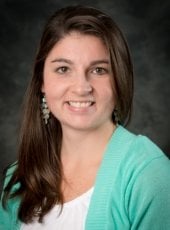 Whitney Boroski, MS student in the ACSHF program and Manager of Student Health and Wellness, was recently awarded the 2018 Michigan Coalition to Reduce Underage Drinking (MCRUD) Local Hero Award. MCRUD provides leadership on state and national issues, and assists individuals, grassroots groups, and organizations to reduce underage drinking locally.
Whitney Boroski, MS student in the ACSHF program and Manager of Student Health and Wellness, was recently awarded the 2018 Michigan Coalition to Reduce Underage Drinking (MCRUD) Local Hero Award. MCRUD provides leadership on state and national issues, and assists individuals, grassroots groups, and organizations to reduce underage drinking locally.
Boroski has been resourceful in creating programs and utilizing campus and community resources to assist in reducing underage drinking at the university.
Under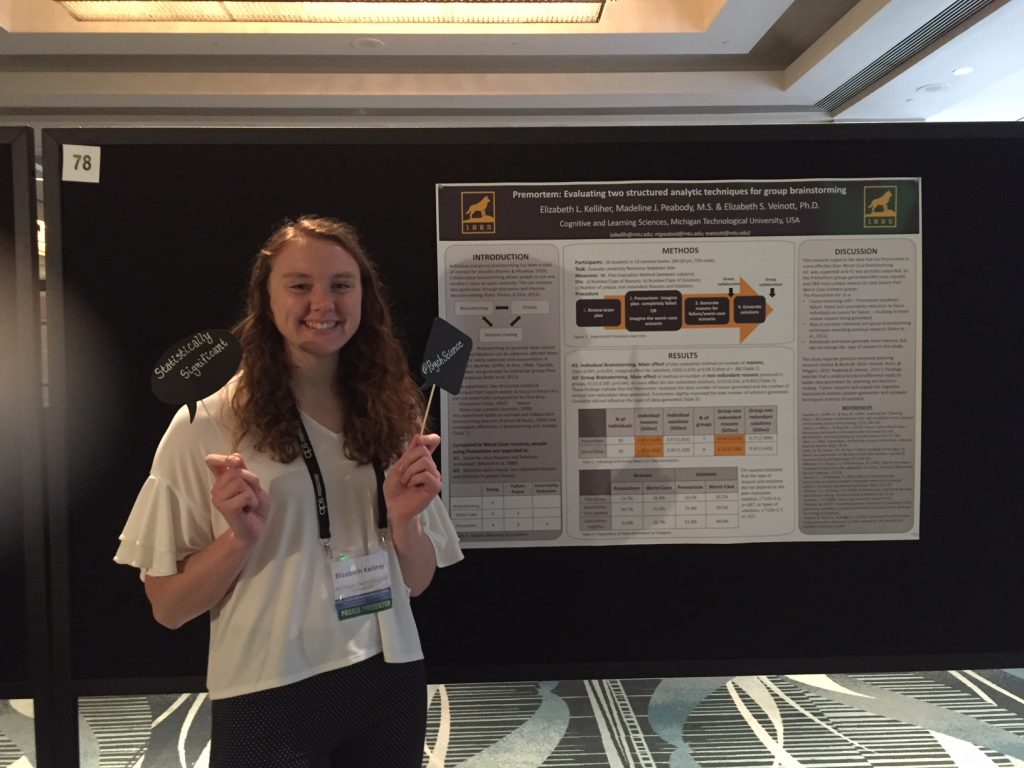 graduate psychology major Elizabeth Kelliher (pictured), Madeline Peabody (ACSHF Alumna), and Professor Veinott presented an analysis of group brainstorming idea generation at the 2018 APS Conference in San Francisco, California.
graduate psychology major Elizabeth Kelliher (pictured), Madeline Peabody (ACSHF Alumna), and Professor Veinott presented an analysis of group brainstorming idea generation at the 2018 APS Conference in San Francisco, California.
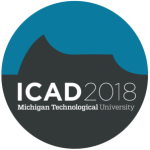 Michigan Technological University has the honor of hosting the 24th annual International Conference on Auditory Display.
Michigan Technological University has the honor of hosting the 24th annual International Conference on Auditory Display.
ICAD is a highly interdisciplinary academic conference with relevance to researchers, practitioners, musicians, and students interested in the design of sounds to support tasks, improve performance, guide decisions, augment awareness, and enhance experiences. It is unique in its singular focus on auditory displays and the array of perception, technology, and application areas that this encompasses. The overarching theme of this year’s conference is sonification as ADSR (art – design – science – research).
Portions of this conference have been made available for free to the general public:
Presentation from Dr. Stefania Serifin
June 11th, 11 a.m. – 12 p. m.
Forestry Building Room G02
20 Years of Sonic Interactions
Presentation from Dr. Carryl Baldwin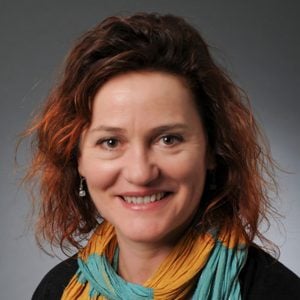
June 12th, 11 a.m. – 12 p. m.
Forestry Building Room G02
Auditory Displays to Facilitate Attention Management in Highly Autonomous Systems
Two recent crashes in January 2018 involving Tesla’s Model S, underscore the importance of the need for driver’s to maintain awareness in semi-automated vehicles, even when the autopilot is engaged. Despite manufacturer’s warnings and cautionary statements in owner’s manuals, decades of research in vigilance indicates that this will be a challenge, if not impossible for most drivers. This talk will focus on our recent and on-going research developing novel methods of assisting the driver with attention management in highly autonomous systems. Included in this discussion will be a discussion of the methods to develop and validate effective auditory collision avoidance alerts, driver state monitoring with low-cost physiological sensors, and using specific types of music as a means assisting operators with maintaining sustained attention.
Diversity Workshop
June 12th, 3:30 p.m. – 5 p.m.
Forestry Building Room 144
A hands-on workshop on the development of audio-based educational tools and teaching scenarios of activities pertinent to the ICAD domain.
Sonification Concert
June 13th, 6 p.m. – 7 p.m.
Rozsa Center for the Performing Arts
Experience experts’ takes on sonification in concert setting.
You may also register for the full conference here. For more details, visit http://icad2018.icad.org/
Partial funding is provided by the Visiting Women & Minority Lecture/Scholar Series (VWMLSS) which is funded by a grant to the Office of Institutional Equity and Inclusion from the State of Michigan’s King-Chavez-Parks Initiative.
Dr. Robert Hoffma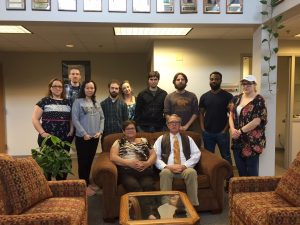 n, world renowned expert on cognitive systems engineering and Senior Scientist at the Institute for Human Machine Cognition (IHMC), gave a talk on April 9, entitled, “Integrated Model of Macrocognition” for students and faculty in Cognitive and Learning Sciences and Human Computing Center at MTU. IHMC, based in Pensacola, Florida, is a leading organization in research to understand and extend human capabilities and technologies.
n, world renowned expert on cognitive systems engineering and Senior Scientist at the Institute for Human Machine Cognition (IHMC), gave a talk on April 9, entitled, “Integrated Model of Macrocognition” for students and faculty in Cognitive and Learning Sciences and Human Computing Center at MTU. IHMC, based in Pensacola, Florida, is a leading organization in research to understand and extend human capabilities and technologies.
Dr. Hoffman is working with MTU Faculty, Dr. Shane Mueller on a DARPA project to develop explainable AI.
Myounghoon “Philart” Jeon (CLS/CS) and his colleague Paul Fishwick guest-edited a special issue on “Arts, Aesthetics and Performance in Telepresence” in the journal Presence: Teleoperators and Virtual Environments.

